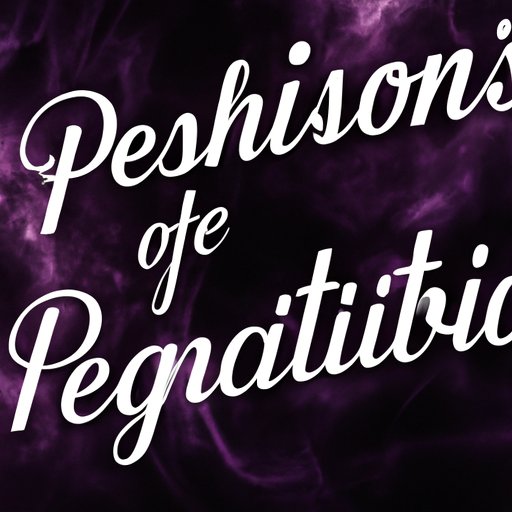
Exploring the Meaning and Power of Petitions
Imagine being able to make a difference by speaking up about something you feel passionate about? Petitions are a valuable tool that makes this possible. By gathering signatures and showing support for a particular issue, petitions can help bring about change in politics, policies, and society as a whole.
Definition of a Petition
A petition is a formal written request that serves as a call to action for change. It is usually addressed to a government or public institution. The purpose of a petition is to bring focused attention to a specific issue and seek support from the broader community. Petitions can be addressed to lawmakers, government agencies, businesses, nonprofit organizations, and more.
The significance of petitions lies in their ability to influence and create change in society. By gathering significant support and attention for an issue, they can encourage policymakers to take action or change their stance on particular legislation. Petitioning can also serve as a way for citizens to raise awareness about social justice issues or shed light on topics that get little attention from the media.
For example, in the United States, petitions played a critical role in the civil rights movement. Thousands of people gathered signatures and marched in support of the Voting Rights Act of 1965. Similarly, petitions have been used to combat environmental pollution and to demand changes in policies related to education, healthcare, and housing. They have always been a popular, nonviolent, and proactive way for people to bring about change.
Historical Context of Petitions
Petitions have been used throughout history in various contexts. For instance, in ancient Rome, petitions were used to appeal to the emperors to redress grievances. Similarly, the Magna Carta, an English document from the 13th century, allowed people to make requests of the king. In the 18th century, the American Revolution used petitions to call for the abolition of slavery and the establishment of an independent government.
Civil rights movements, environmental campaigns, and anti-establishment movements of the 20th century also employed petitions as a tool for political change. For example, the United States civil rights-era Birmingham Campaign of 1963, led by Martin Luther King Jr., called for an end to segregation and discrimination through petitions and peaceful protest. In South Africa, petitions were essential in mobilizing anti-apartheid activism and calling for the release of Nelson Mandela, the celebrated leader of the African National Congress party.
Examples of Successful Petitions
Successful petitions are those that lead to tangible and positive outcomes. Examinations of petitions have demonstrated the power of group support in driving change. The 2006 breast cancer campaign in the USA, organized by Breast Cancer Fund, succeeded in securing the end of a chemical additive used in many beauty products and cosmetics. Similarly, a petition in the 1990s organized by mothers and grandmothers in Argentina played a critical role in bringing about the arrest of thousands of military personnel responsible for the disappearance of people during the country’s military dictatorship.
The success of these petitions can be attributed to the effective strategies of the campaign organizers. In most cases, petitions garner greater support through social networks and online platforms. Social media has facilitated the distribution of petitions worldwide and increased their impact on the mainstream media. Well-crafted petitions that raise awareness and inspire people to take action are likely to generate much-needed support for a cause.
Anatomy of a Petition
Campaigners start petitions with clear inputs to formalize their requests and possible outcomes. The first step in creating a campaign is to identify the target audience and topic, then draft a message that captures the urgency of the request. Petitions should generally be clear and concise, with the main issue and problem outlined in the first paragraph. The text should be persuasive, but not emotional overwhelm the readers and explain why the signatories should care about the issue. To ensure the petition is accessible and readable, it is necessary to avoid unnecessary jargon and make it pet-friendly and easy to share.
It is essential to get the support of others when it comes to petitions. Promoting the campaign across different channels is crucial to ensure that people are aware of it and can take action to support the cause. Campaigners should prioritize social media platforms like Twitter, Facebook, Instagram, and use relevant hashtags and keywords to make their campaign go viral.
Analyzing Petition Data
The data collected after a petition is closed and analyzed provides information about the success of the petition. Petitions that get their goals exceeded in a shorter period mean that the campaign was able to mobilize enough support quickly. A successful petition should have many signatures, new signatories every day, and high quality. Another essential metric to consider in analyzing petition data is the geographic distribution of the signatories, which can indicate how the campaign resonates differently in various locations.
Power of Petitions Today
Today, online petitions are more popular than ever before. With the rise of crowdfunding campaigns and social media activism, petitions have become an essential tool for influencing decision-making processes. With the availability of tools like Change.org, MoveOn.org, and other platforms, organizing and sharing petitions has become much easier.
But more than technological advancements, petitions matter because they have the power to affect societal change. Online petitions can go viral, attracting global attention and support. Across the globe, petitions have been successful in mobilizing societies around human rights, equal justice, access to education, and the environment.
Conclusion
Petitions are an essential tool for those who want to drive societal change and positively impact the world. By harnessing the power of social media and collective action, activists, and campaigners can bring attention to pressing issues and mobilize support for their cause. Successful petitions can lead to changes in policy, legislation, and social attitudes, which can have a lasting impact on society.
